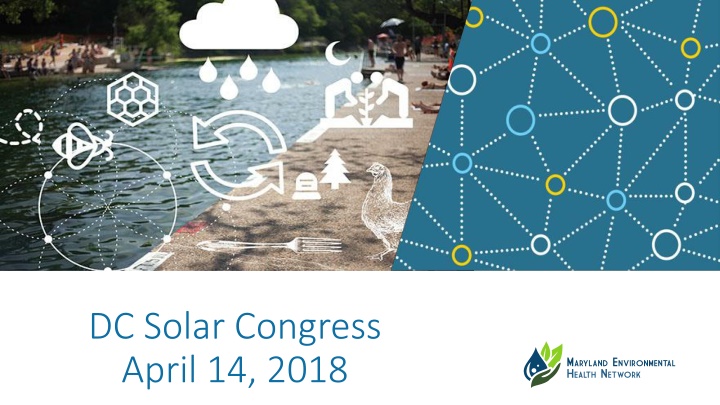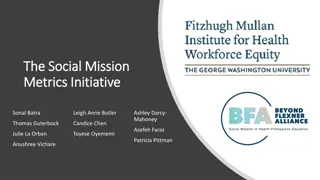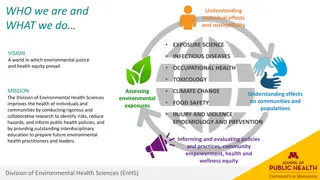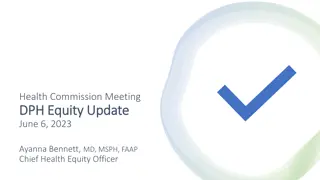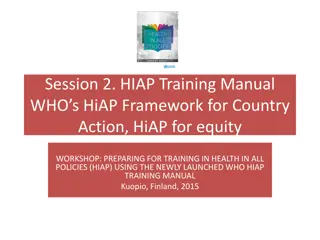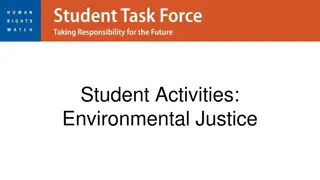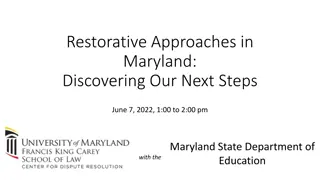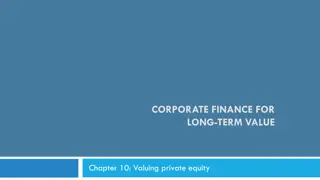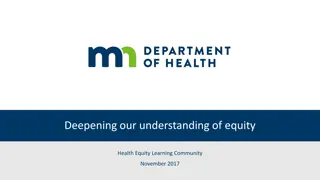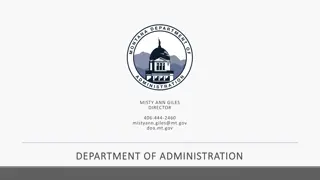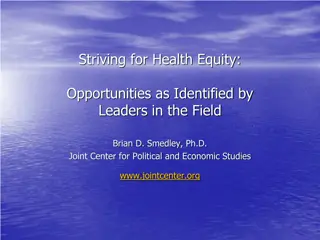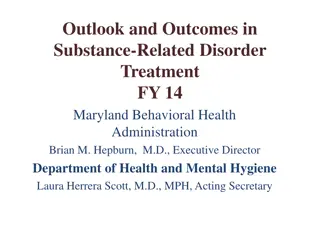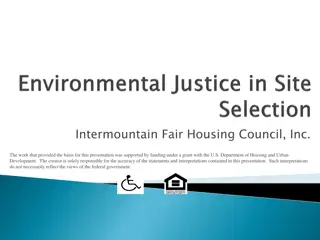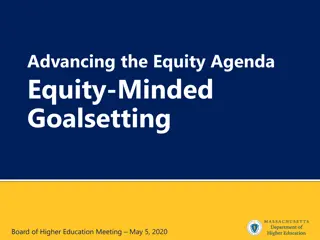Advancing Environmental Justice and Health Equity in Maryland
Enhancing environmental justice and health equity in Maryland through initiatives focusing on renewable energy, community resiliency, and equitable access to decision-makers. Addressing housing disparities, pollution impacts, and the crucial link between energy efficiency and low-income households to promote a healthier, more sustainable future.
Download Presentation

Please find below an Image/Link to download the presentation.
The content on the website is provided AS IS for your information and personal use only. It may not be sold, licensed, or shared on other websites without obtaining consent from the author.If you encounter any issues during the download, it is possible that the publisher has removed the file from their server.
You are allowed to download the files provided on this website for personal or commercial use, subject to the condition that they are used lawfully. All files are the property of their respective owners.
The content on the website is provided AS IS for your information and personal use only. It may not be sold, licensed, or shared on other websites without obtaining consent from the author.
E N D
Presentation Transcript
DC Solar Congress April 14, 2018
What Well Cover Today What We ll Cover Today Operating Framework: Equity, Access, and Justice Energy and Health Equity Renewable Energy and Access Community Resiliency and Justice
Who We Are Who We Are Mission: To eliminate environmental threats to human health. A women of color lead organization Based in Baltimore and we work across the state of Maryland. A network of health professionals, environment and health advocates and impacted community members We operate as community builders, educators, and EH policy experts
Health is a function of Environmental Justice Health is a function of Environmental Justice Equity in the distribution of benefits and burdens among all Marylanders Access to decision makers at a time when their actions can inform a process rather than provide observations on the impact of an action Justice is the realization of the highest potential of each and all without the weight of structural barriers or biases
Energy & Energy & Health Equity Health Equity Maryland Environmental Health Network www.mdehn.org @MdEnvHealth
Housing Housing Income impacts housing stock quality oLow-income households struggle with energy efficient homes oHigh energy consumption due to inefficiency creates economic burdens Apartment dwellings oLandlords lack incentives to provide energy efficient dwellings
Pollution Pollution Pollution from non-renewable energy burdens low-income communities and communities of color Lifetime health impacts can limit social mobility oMaryland residents with the lowest household income (<$15,000/yr) account for the majority of adults with asthma at 15.5%. oAsthma accounts for the greatest loss of productivity through missed work days or school absenteeism oNationally it is estimated that approximately 10 million work days are missed each year due to asthma
Renewable Renewable Energy & Energy & Access Access Maryland Environmental Health Network www.mdehn.org @MdEnvHealth
Accessibility for ALL Accessibility for ALL Expensive renewable energy is everyone s problem oEnergy efficient, and clean and renewable energy is good! But, not universally accessible as policies and programs that incentivize its use emphasize ownership and leave out tenants out. oLeaving renters behind means continued production of greenhouse gases and climate change
Community Community Resiliency & Resiliency & Justice Justice Maryland Environmental Health Network www.mdehn.org @MdEnvHealth
Climate Change Climate Change Socioeconomic factors influence community vulnerability Poor housing - Exposure to hazards in the built environment and elements Impacts of Sea level Rise - Greater incidence of water borne illness Poor Air Quality for populations in proximity to high traffic areas - Asthma exacerbation and ground level ozone rise Extreme heat events - Increased likelihood of death to persons with fragile health facing cumulative impacts during extreme events
Building community resilience Building community resilience Create policies with low income residents, at the beginning of policy development so that the perspective of low-income residents is built in. Create plain language, accessible (in every language) public facing information on programs, policies and agencies where decisions are made about energy policy Consider existing and projected human health, when creating energy policy Build a culture of inclusive development, where public input is early and often
Contact Us! Contact Us! Website: mdehn.org Twitter: @MdENVHealth Facebook: @MdEnvHealth Email: info@mdehn.org Tamara Toles O Laughlin, Executive Director | @Tamaraity Yinka Bode George, Program Manager | @YinkaBG
